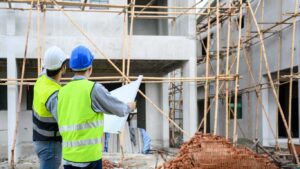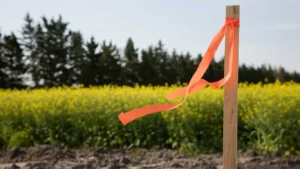Exploring the Essential Importance of Detail Surveys in Development Projects for Fraser Rise
What Are Detail Surveys and Why Are They Critical for Land Development?
Detail surveys represent thorough evaluations that produce exact measurements and essential data required for land development projects. In Fraser Rise, these surveys play a vital role in ensuring accurate planning and construction, serving as the bedrock for successful developments. Generally, a detail survey includes several key components, such as:
- Topographical mapping
- Boundary delineation
- Location of existing structures
- Utilities and services mapping
- Vegetation assessment
- Soil analysis
- Geospatial information
- Regulatory compliance documentation
These crucial components empower developers to visualise the terrain effectively and gain comprehensive insights into the land’s capabilities and limitations, which is essential for making well-informed decisions. Without this detailed information, projects may encounter unexpected obstacles, leading to delays and increased costs, which can negatively impact the overall development timeline.

Why Are Detail Surveys Absolutely Necessary for Successful Developments in Fraser Rise?
The importance of detail surveys in the context of Fraser Rise cannot be underestimated. These surveys are crucial for adhering to local regulations, thereby avoiding potential legal issues. A thorough understanding of land features is essential for the successful execution of development projects. By offering detailed insights into the topography, existing infrastructure, and utility services, detail surveys help mitigate risks associated with the construction process. Moreover, they ensure that developments are in line with environmental sustainability and social responsibility, thus meeting community expectations.
The information obtained from detail surveys empowers developers to make informed decisions regarding planning and resource allocation, ultimately leading to enhanced project outcomes. Investing in a detailed survey at the beginning lays a strong foundation for a streamlined development process, significantly reducing the likelihood of costly mistakes that could derail the project.
How to Successfully Initiate a Detail Survey in Fraser Rise?
Starting a detail survey in Fraser Rise begins with hiring a qualified licensed surveyor who possesses the necessary expertise and knowledge of local conditions. The first step involves identifying a professional who is familiar with the specific requirements pertinent to your property. After you select a surveyor, an initial consultation is essential to thoroughly discuss the project’s scope and objectives.
Following this, gathering all relevant documentation, including title deeds, previous survey information, and any planning permits, is critical. This documentation will help the surveyor understand the context of your property, enabling them to conduct a comprehensive survey. Once the survey is scheduled, the surveyor will undertake fieldwork, collecting data on various site aspects, which will be used to create detailed maps and reports customised for your development needs.
In-Depth Insights About the Importance of Detail Surveys in Fraser Rise
Real-World Illustrations Highlighting the Influence of Detail Surveys
Real-world examples from Fraser Rise vividly illustrate the transformative impact of detail surveys on local development initiatives. For instance, a recent residential project effectively leveraged detail surveys to navigate complex zoning regulations and topographical challenges. The surveyors identified flood-prone areas, enabling developers to strategically position homes above potential water levels. This proactive strategy not only led to cost savings but also significantly improved community safety and resilience.
Another notable case involved a commercial project that relied extensively on detail surveys to assess existing utilities and services. By mapping the locations of power lines and sewage systems, developers could avoid disruptions, streamline construction operations, and ensure compliance with local regulations. These case studies underscore the strong connection between effective detail surveys and successful project outcomes in Fraser Rise, highlighting their pivotal role in the development landscape.
Practical Steps for Conducting Effective Detail Surveys
To conduct an effective detail survey in Fraser Rise, consider implementing the following actionable steps:
- Engage a qualified surveyor with local expertise and experience.
- Clearly articulate the survey’s scope and objectives at the outset.
- Collect and provide all necessary documentation and background information to the surveyor.
- Schedule the survey at a time that minimises disruptions to surrounding areas and stakeholders.
- Ensure that the surveyor performs a thorough site assessment, including environmental considerations.
- Review the delivered data carefully, seeking clarifications as needed to prevent misunderstandings.
- Utilise the resulting maps and reports to inform planning and development decisions, ensuring alignment with project goals.
By adhering to these steps, you can ensure that your survey is conducted efficiently, resulting in accurate data that enhances decision-making processes. The meticulous nature of detail surveys requires careful planning and execution, making these steps essential for achieving optimal results in your development project.
Expert Guidance on Effectively Interpreting Survey Data
Accurate interpretation of detail survey data is crucial for making informed decisions regarding property development in Fraser Rise. The information gathered can encompass topographical features, boundaries, existing infrastructure, and environmental conditions. Understanding how these elements interact is vital for effective planning and successful project execution.
Experts recommend approaching survey data with a holistic perspective. Start by analysing topographical maps to identify elevation changes, which can significantly influence drainage and landscaping plans. Next, examine boundary data to ensure compliance with zoning laws and to avoid disputes with neighbouring properties. It is also essential to evaluate the locations of existing utilities to determine the feasibility of connecting new developments to essential services.
Furthermore, integrating survey data with software tools can enhance your ability to visualise potential projects interactively. By layering different datasets, such as environmental assessments alongside topographical maps, you can gain insights into the most effective approaches for your development while efficiently mitigating risks associated with unforeseen challenges.
How Can Detail Surveys Transform Your Project in Fraser Rise?
Enhancing Project Planning Efficiency through Detail Surveys
Detail surveys significantly boost project planning by delivering comprehensive data that informs every stage of the development process. The accuracy of these surveys diminishes the risk of costly errors, leading to more efficient project timelines and budget management. In Fraser Rise, where land characteristics can vary significantly, having an exact representation of the site is essential for effective planning and execution.
For example, understanding the precise contours of the land can greatly influence decisions regarding the placement of buildings, roads, and other critical infrastructure. This level of detailed insight allows developers to optimise land use, ensuring that every aspect of the project aligns with the physical realities of the site. Moreover, with comprehensive maps and data available, project managers can proactively identify potential challenges, such as the need for additional earthworks or drainage solutions, allowing them to adjust their plans in advance to prevent complications.
Utilising detail surveys facilitates a collaborative planning environment where all stakeholders can make data-driven decisions, ensuring that development aligns with community needs and expectations while enabling smoother project execution.
What Are the Financial Considerations Related to Detail Surveys?
Understanding the financial aspects of detail surveys is vital for effectively managing budgets in any development project in Fraser Rise. Although detail surveys represent an initial investment, their long-term savings potential is substantial. By providing accurate data from the outset, these surveys help minimise the risk of delays and unexpected expenses during the construction phase.
Investing in detail surveys can avert common pitfalls that arise from inadequate planning, such as budget overruns due to unforeseen site conditions. When developers underestimate costs due to a lack of precise information, they may face emergency expenditures mid-project, severely impacting overall budgets and financial forecasts.
Moreover, detail surveys contribute to regulatory compliance, preventing developers from incurring fines or needing to make costly adjustments to meet local regulations once construction has already commenced. Ultimately, the initial costs associated with a detail survey can lead to savings that far surpass the investment, making it a prudent decision for any serious developer in Fraser Rise aiming for sustainable and efficient project outcomes.
Improving Safety and Compliance Through Detail Surveys
Detail surveys play an instrumental role in ensuring compliance and safety for development projects in Fraser Rise. Given the stringent local regulations governing land use and environmental impacts, having an accurate understanding of a site’s features is essential for fulfilling legal obligations. Detail surveys provide the necessary documentation and data to demonstrate adherence to these regulations, thereby safeguarding the integrity of the project.
In addition, by identifying environmental factors such as flood zones, wildlife habitats, and soil conditions, detail surveys enhance the safety of construction projects. Armed with this information, developers can take proactive measures to mitigate risks before they escalate, such as designing drainage systems to effectively manage stormwater or selecting appropriate construction materials that comply with safety standards.
Incorporating safety considerations into the planning stages, driven by insights from detail surveys, not only protects investments but also fosters community trust. Residents are likely to feel more secure knowing that developments have been meticulously planned with safety and compliance as top priorities, leading to improved community relations.
What Are the Key Considerations for Detail Surveys in Fraser Rise?
Choosing the Right Surveyor for Your Development Project
Selecting the right surveyor is a critical step in ensuring the success of your detail survey in Fraser Rise. A qualified surveyor should possess relevant qualifications and experience, particularly within the local context. When selecting a surveyor, consider looking for:
- Licensing and certification in surveying practices
- Experience with similar projects in Fraser Rise
- Positive client testimonials and references from previous clients
- Familiarity with local regulations and compliance requirements
- Access to advanced surveying technology and methodologies that enhance data accuracy
- Effective communication skills to facilitate collaboration
- Ability to provide comprehensive reports and data analysis tailored to project needs
The right surveyor will not only ensure that the survey is conducted efficiently but will also provide guidance throughout the planning and development phases. Their expertise can help you navigate potential pitfalls and align your project with best practices in the industry, ultimately contributing to successful project outcomes.
Understanding the Timeline for Completing Your Detail Survey
Having a clear understanding of the timeline for a detail survey is essential for effective project scheduling in Fraser Rise. Generally, the duration of a detail survey can vary based on several factors, including the complexity of the site, the scope of the survey, and the availability of the surveyor.
Typically, a detail survey can take anywhere from a few days to several weeks. Initial consultations and site assessments often require additional time, as does the analysis and reporting phase. To plan your project effectively, it is advisable to account for potential delays caused by weather conditions or additional regulatory requirements that may arise.
Engaging with your surveyor early in the process can provide a clearer picture of the expected timeline. By setting realistic expectations and milestones, you can integrate the survey process into your overall project timeline, ensuring that each phase of development proceeds smoothly and without unnecessary delays.
Addressing Environmental Factors in Detail Surveys for Fraser Rise
Environmental considerations are paramount when conducting detail surveys in Fraser Rise. These surveys must take local ecological conditions into account to ensure that development practices are both sustainable and compliant with environmental regulations established by local authorities.
For instance, understanding the presence of native vegetation, wildlife habitats, and watercourses is essential for minimising ecological disruption. Detail surveys can identify sensitive areas that may require protective measures, such as buffer zones around waterways or conservation easements for significant habitats, ensuring that development does not adversely impact local ecosystems.
Moreover, incorporating environmental assessments into detail surveys aids developers in making informed decisions about land use. By recognising the ecological limitations and opportunities presented by the site, developers can design projects that align with sustainability goals and community expectations, ultimately leading to more successful outcomes and community support.
Assessing the Accuracy Standards for Detail Surveys in Fraser Rise
The accuracy standards for detail surveys in Fraser Rise are mandated by local regulations and the specific needs of the development project. Understanding these requirements is vital for ensuring compliance and achieving the desired level of detail in survey outputs.
Generally, high-accuracy measurements are essential for boundary delineation, where precise data prevents disputes and legal issues with neighbours. The required level of detail for topographical features may vary based on the complexity of the site and the nature of the proposed development.
Surveyors typically adhere to industry standards, which dictate the necessary accuracy levels based on the project’s scope. Engaging with your surveyor to clearly outline these accuracy requirements is vital for achieving optimal results. By ensuring that the detail survey meets or exceeds these standards, you can confidently move forward with your development plans, mitigating risks associated with inaccuracies.
Embedding Local Regulations into Detail Surveys for Comprehensive Compliance
Incorporating local regulations into detail surveys is crucial for avoiding legal complications and ensuring project approval in Fraser Rise. These regulations may encompass zoning laws, land use policies, and environmental protection statutes that must be adhered to throughout the survey process.
To successfully navigate these regulations, developers should work closely with their surveyor to comprehend the specific requirements that apply to their project. This may involve securing permits, conducting impact assessments, or engaging with local authorities for compliance checks to ensure that all necessary documentation is in order.
Failure to comply with local regulations can result in significant delays, fines, or even project cancellations. Therefore, an in-depth understanding of these regulations, combined with thorough detail surveys, is essential for aligning development activities with the expectations of local governance and the community at large, ensuring a smoother approval process.
Proven Strategies for Conducting Detail Surveys in Fraser Rise
Utilising Advanced Surveying Technologies for Enhanced Accuracy
Implementing advanced surveying technologies can significantly improve the accuracy and efficiency of detail surveys in Fraser Rise. Techniques such as 3D laser scanning, drone surveys, and Geographic Information Systems (GIS) have revolutionised the surveying industry, allowing for a remarkable level of detail and precision that was previously unattainable.
3D laser scanning captures millions of data points in a fraction of the time required for traditional surveying methods, enabling surveyors to create highly accurate three-dimensional models of the terrain for comprehensive analysis. Drones can cover extensive areas quickly, providing invaluable aerial imagery that is essential for topographical analysis and planning purposes, facilitating strategic decision-making based on accurate site representations.
GIS technology allows for the integration of various data sources, enabling detailed spatial analysis and visualisation that enhances project planning. By employing these advanced techniques, surveyors can significantly improve data quality and reduce turnaround times, ultimately leading to more informed decision-making for developers aiming to achieve successful project outcomes.
How to Maximise the Value of Your Survey Data for Development Success?
To maximise the value of survey data for your Fraser Rise project, it is essential to adopt a strategic approach to data utilisation. Start by ensuring that you thoroughly understand the data’s implications for your project’s planning and design phases. This understanding will guide your decision-making processes and ensure that the data is effectively integrated into all aspects of the project.
Utilising software tools that enable data visualisation can significantly enhance your ability to interpret the information effectively. This can assist stakeholders in making better-informed decisions, integrating survey insights seamlessly into the project planning process. Regularly reviewing and updating survey data is also crucial, particularly for long-term projects that may evolve over time.
Environmental changes, regulatory shifts, and community feedback are all factors that may influence the relevance of your survey data over time. By maintaining an ongoing relationship with your surveyor, you can ensure that your project remains compliant and attuned to the latest information, ultimately leading to more successful outcomes and stakeholder satisfaction.
Collaborating with Local Authorities for Streamlined Survey Processes
Effective collaboration with local authorities can greatly streamline the detail survey process and ensure compliance in Fraser Rise. Engaging with local governance early in the planning phase helps identify specific regulatory requirements and expectations for your project, facilitating smoother approvals.
Establishing communication with planning departments, environmental agencies, and community stakeholders allows developers to gain valuable insights into local priorities. This collaboration can facilitate smoother approvals and potentially expedite the process, as local authorities are more likely to support projects that have engaged with community concerns and regulatory frameworks, fostering a positive relationship between developers and local governance.
Additionally, keeping local authorities informed throughout the surveying and development phases can help address any emerging issues promptly. By fostering a cooperative relationship, developers can enhance the potential for project success and community support, ultimately leading to better outcomes for all involved.
Ensuring Data Security and Privacy in Detail Surveys
Securing survey data with robust security measures is essential for maintaining privacy and integrity in Fraser Rise projects. Given the sensitive nature of property information, implementing strong data management protocols is crucial to safeguard against potential breaches.
Begin by establishing clear data access policies, ensuring that only authorised personnel can access survey data. Utilising secure cloud storage solutions can protect information against unauthorised access or data breaches, providing peace of mind to all stakeholders. Regularly updating software and security protocols will further enhance your data protection efforts, ensuring compliance with best practices.
In addition to data management, transparency with stakeholders regarding data usage and privacy practices is vital for building trust. Clearly communicating how data will be used and who will have access can alleviate concerns among community members, ensuring that they feel secure about their information being handled responsibly and ethically.
Leveraging Historical Data to Enhance Survey Outcomes
Leveraging historical survey data can significantly improve the accuracy and context of current detail surveys in Fraser Rise. Historical data provides a foundation for understanding how a site has evolved over time, revealing patterns and potential challenges that may arise in future developments.
For instance, historical data can inform developers about prior land use, which may impact current zoning or environmental assessments. By analysing past surveys, developers can identify trends in land development, helping to anticipate future needs and issues that may arise during the development process.
Incorporating this historical context into new survey work allows developers to create a more comprehensive picture of the land, ultimately leading to better planning decisions. Historical data can also serve as a benchmarking tool, enabling developers to evaluate their projects against past developments in the area, ensuring alignment with community expectations and regulatory requirements.
Significant Case Studies Showcasing the Impact of Detail Surveys in Fraser Rise
Successful Residential Developments Highlighting the Benefits of Detail Surveys
A variety of successful residential developments in Fraser Rise underscore the substantial advantages of detail surveys. These projects have utilised precise data to inform planning, enhance safety, and ensure compliance with local regulations. Key success factors include:
- Thorough site assessment and analysis based on accurate data
- Effective collaboration with surveyors and local authorities throughout the project lifecycle
- Incorporation of community feedback into planning processes
- Proactive measures to address environmental considerations, ensuring sustainability
- Utilisation of advanced surveying technology for improved accuracy and efficiency
For example, a recent residential project implemented comprehensive detail surveys to identify suitable building sites while preserving green spaces. The survey data enabled developers to position homes strategically, steering clear of low-lying areas susceptible to flooding. These proactive decisions not only safeguarded investments but also fostered a sense of community and environmental responsibility, reinforcing the project’s alignment with community values.
Commercial Projects Enhanced by Insightful Detail Surveys
Detail surveys have also been pivotal in the success of commercial developments in Fraser Rise. One notable project involved a mixed-use development that integrated retail and residential spaces. The detail survey conducted prior to construction revealed crucial information regarding existing infrastructure and utility locations, enabling efficient planning.
By understanding the spatial dynamics of the site, developers could design an efficient layout that maximised visibility and accessibility for commercial tenants while ensuring that residential units remained private and secure. The result was a thriving hub that balanced functionality with community needs, showcasing the value of detail surveys in aligning project goals with local expectations and enhancing overall project success.
Infrastructure Projects Benefiting from Detailed Detail Surveys
Infrastructure projects within Fraser Rise have reaped significant benefits from the insights provided by detail surveys. A recent major infrastructure initiative—a new road development—heavily relied on detailed topographical data to navigate the complexities of the existing landscape.
The detail survey identified elevation changes and potential drainage issues that could have led to significant complications during construction. By addressing these challenges upfront, the developers created a road layout that minimised earthworks and reduced costs. Additionally, proactive engagement with local authorities throughout the surveying process ensured compliance and streamlined approvals, ultimately benefiting the community.
The success of such infrastructure projects underscores the critical importance of detail surveys in mitigating risks and delivering effective solutions that benefit the community at large, ensuring sustainable development practices.
Environmental Impact Assessments Supported by Detail Surveys
Detail surveys also play a vital role in conducting environmental impact assessments for projects in Fraser Rise. These assessments are designed to evaluate potential effects of development on local ecosystems, and accurate survey data is essential for a thorough analysis.
For instance, a recent development proposal involved constructing a commercial facility adjacent to a protected habitat. The detail survey revealed the presence of native vegetation and wildlife corridors, necessitating careful planning to avoid adverse impacts on the local environment.
By leveraging insights gained from the detail survey, developers could devise strategies that facilitated environmental preservation while meeting their project objectives. This collaborative approach demonstrated a commitment to sustainability and community welfare, enhancing the overall quality of the development and earning community support.
Community Projects Enhanced by Comprehensive Detail Surveys
Community projects in Fraser Rise have also experienced significant enhancements through the application of detail surveys. One exemplary case involved the development of a local park aimed at improving recreational space for residents.
The detail survey provided essential information about existing land features, soil conditions, and vegetation. This data enabled planners to design a park that not only met community needs but also preserved important ecological areas. The resulting park features walking trails, picnic areas, and habitat preservation zones, which have become a valuable asset to the community.
Engaging community members during the survey process ensured that the park’s design reflected local interests and values, fostering a sense of ownership and pride among residents. This case illustrates how detail surveys facilitate community-centric developments that promote sustainability and enhance local quality of life.
Frequently Asked Questions About Detail Surveys
What constitutes a detail survey?
A detail survey is a comprehensive assessment that provides precise measurements and data for land development, ensuring accurate planning and construction throughout the project lifecycle.
Why are detail surveys vital in Fraser Rise?
Detail surveys are crucial for compliance with local regulations and help prevent costly mistakes during the development process, ensuring that projects meet community and environmental standards.
How do I begin a detail survey?
Start by hiring a licensed surveyor, discussing your project’s requirements, and gathering necessary documentation to facilitate a comprehensive survey.
What are the key elements of a detail survey?
Key elements include topographical mapping, boundary delineation, existing structures, utilities mapping, and environmental assessments that guarantee thorough evaluations.
How can detail surveys enhance project planning?
Detail surveys provide comprehensive data that diminishes the risk of errors, enabling more informed decision-making and efficient resource allocation throughout the development process.
What are the financial implications of detail surveys?
While detail surveys represent an upfront investment, they can lead to substantial cost savings by preventing delays and ensuring compliance with local regulations during the construction phase.
How do detail surveys improve safety and compliance?
Detail surveys identify potential risks related to the environment and ensure adherence to local regulations, enhancing safety and compliance throughout the development process.
What should I consider when selecting a surveyor?
Seek qualifications, experience with similar projects, local knowledge, and positive client testimonials when choosing a surveyor to ensure effective project execution.
How much time does a detail survey require?
The timeline for a detail survey can vary, typically ranging from a few days to several weeks depending on the site’s complexity and the survey’s scope.
How can I optimise the value of my survey data?
Maximise survey data by using software for visualisation, regularly updating information, and integrating insights into project planning to enhance decision-making.
Connect with us on Facebook!
The Article: Detail Surveys in Fraser Rise: Your Essential Guide first appeared on https://writebuff.com
The Article Detail Surveys in Fraser Rise: A Complete Overview Was Found On https://limitsofstrategy.com



